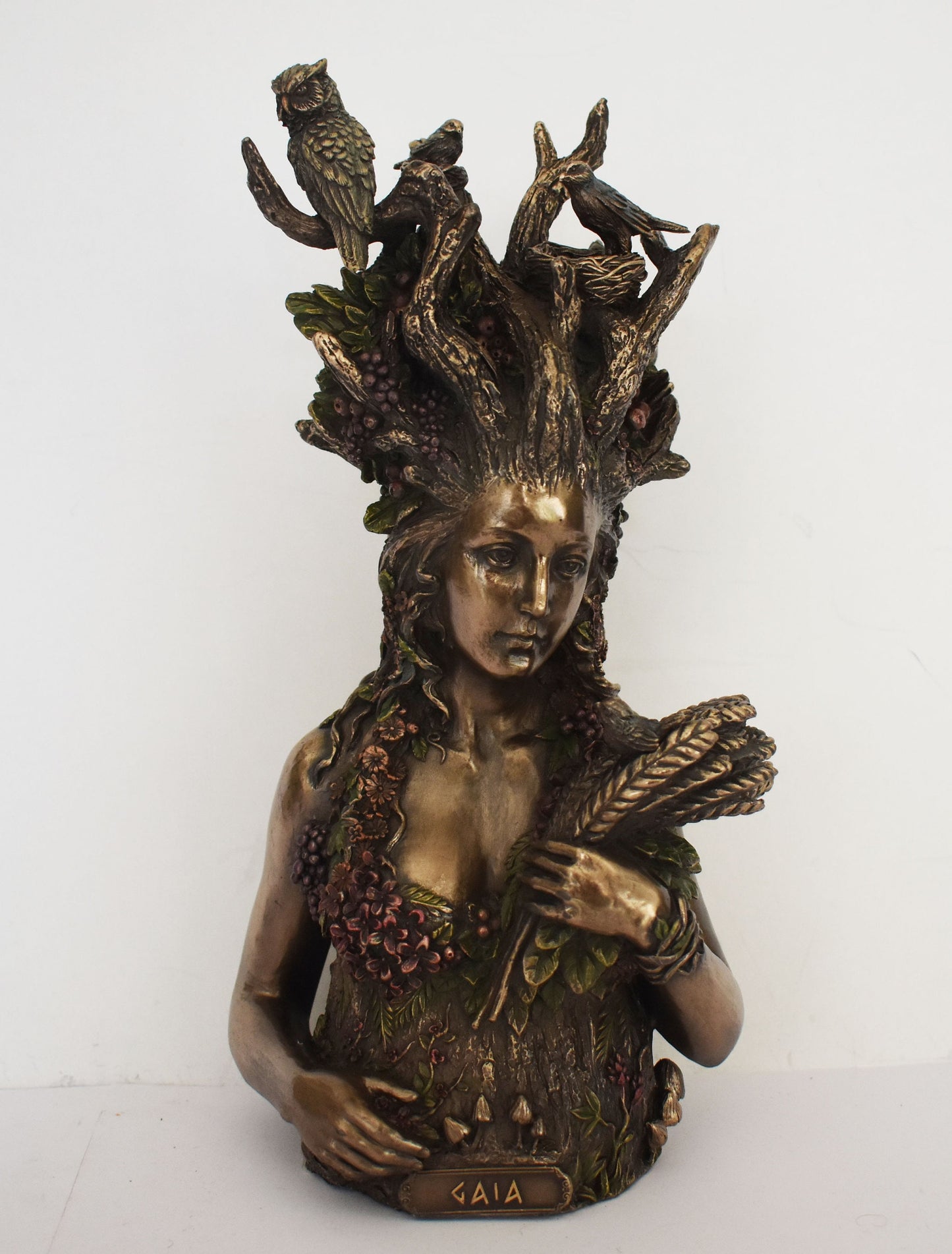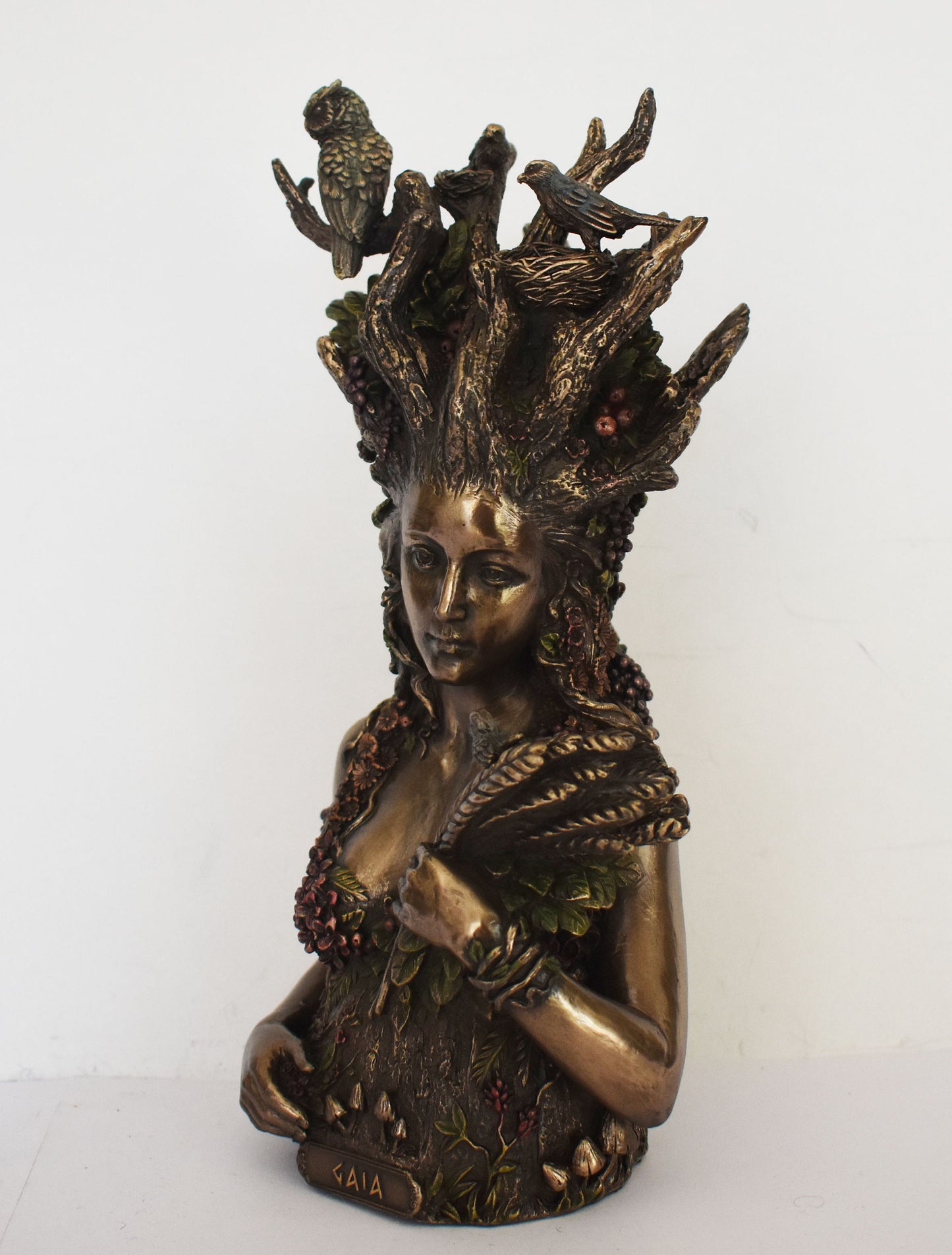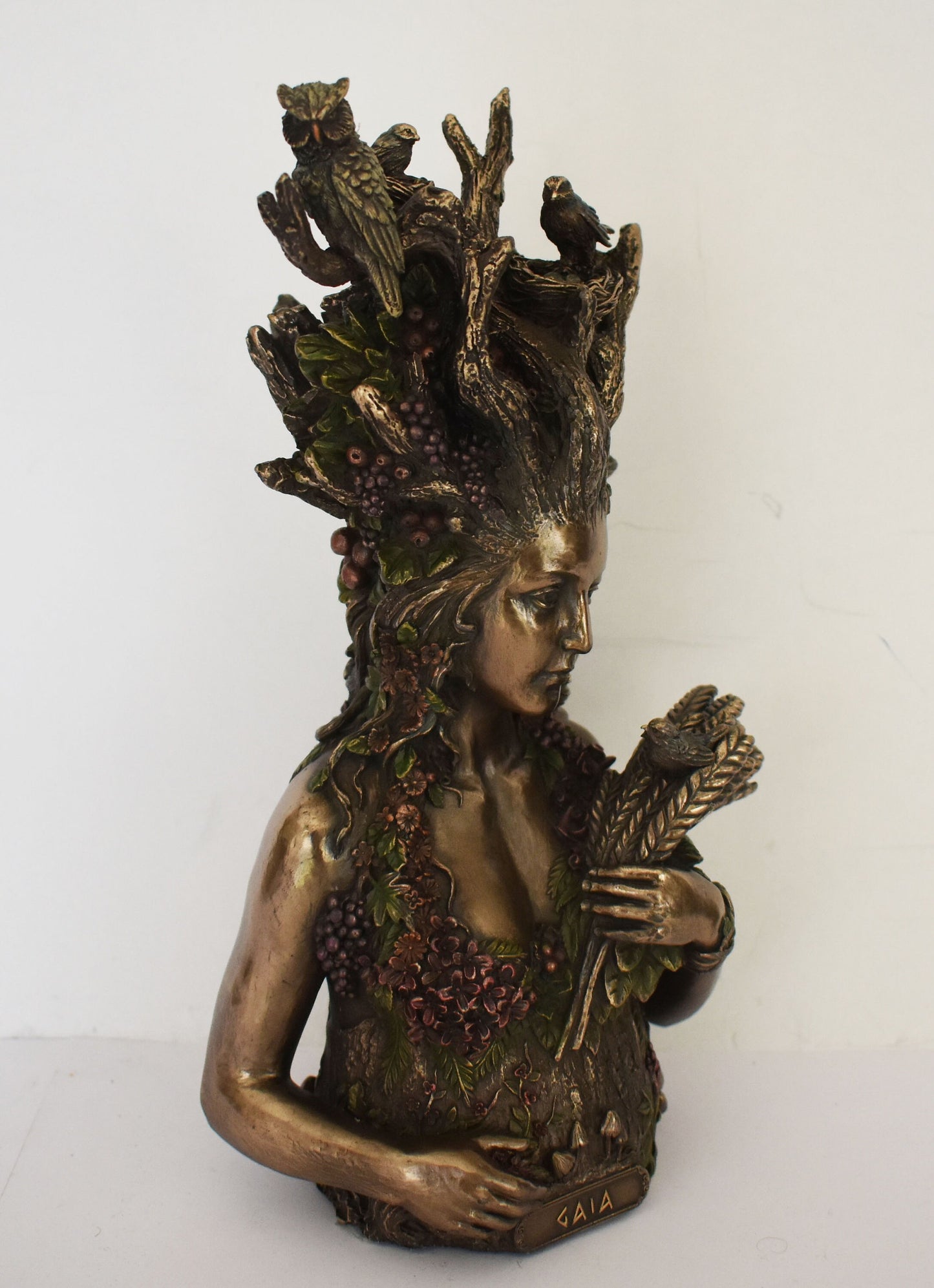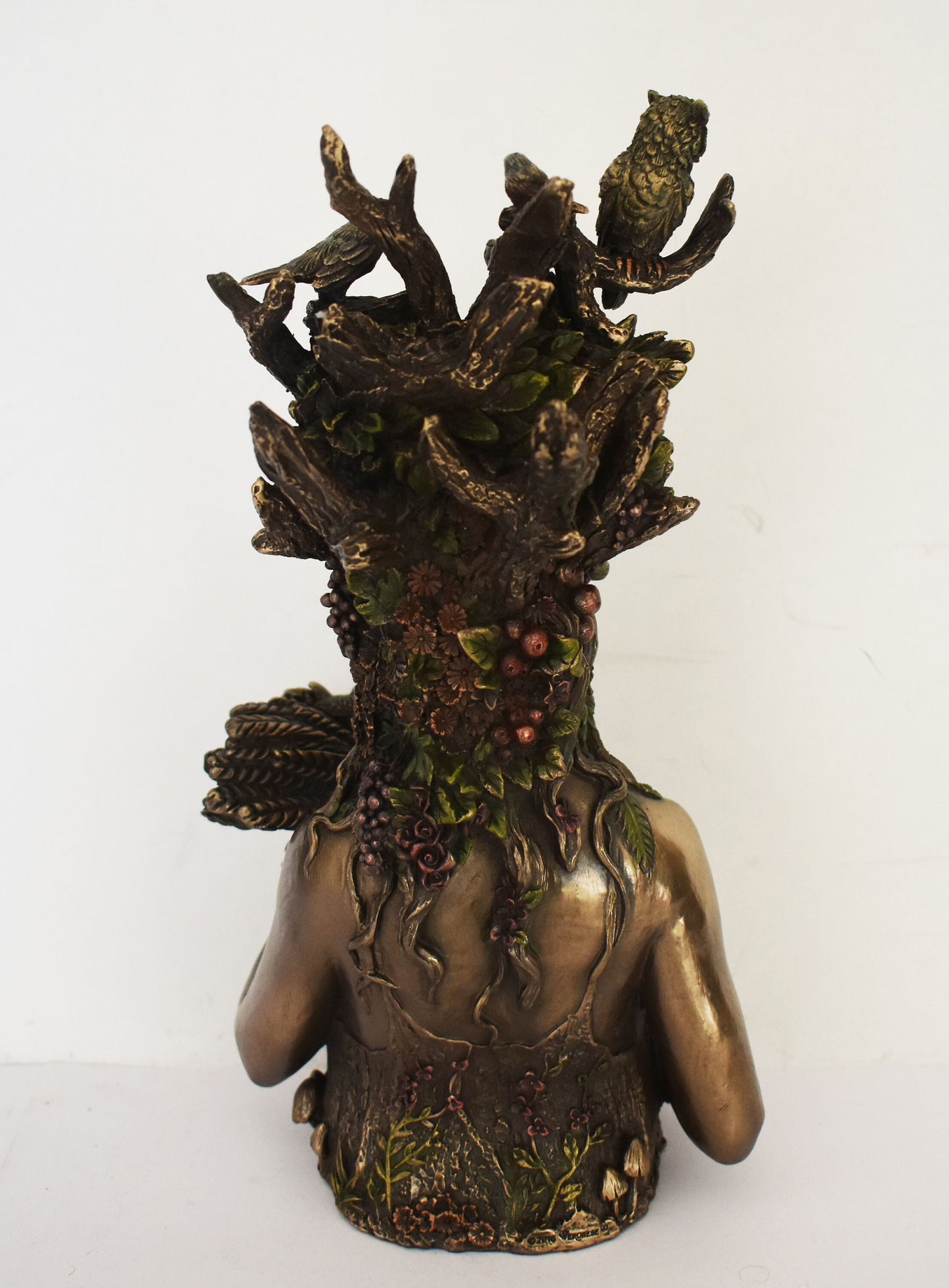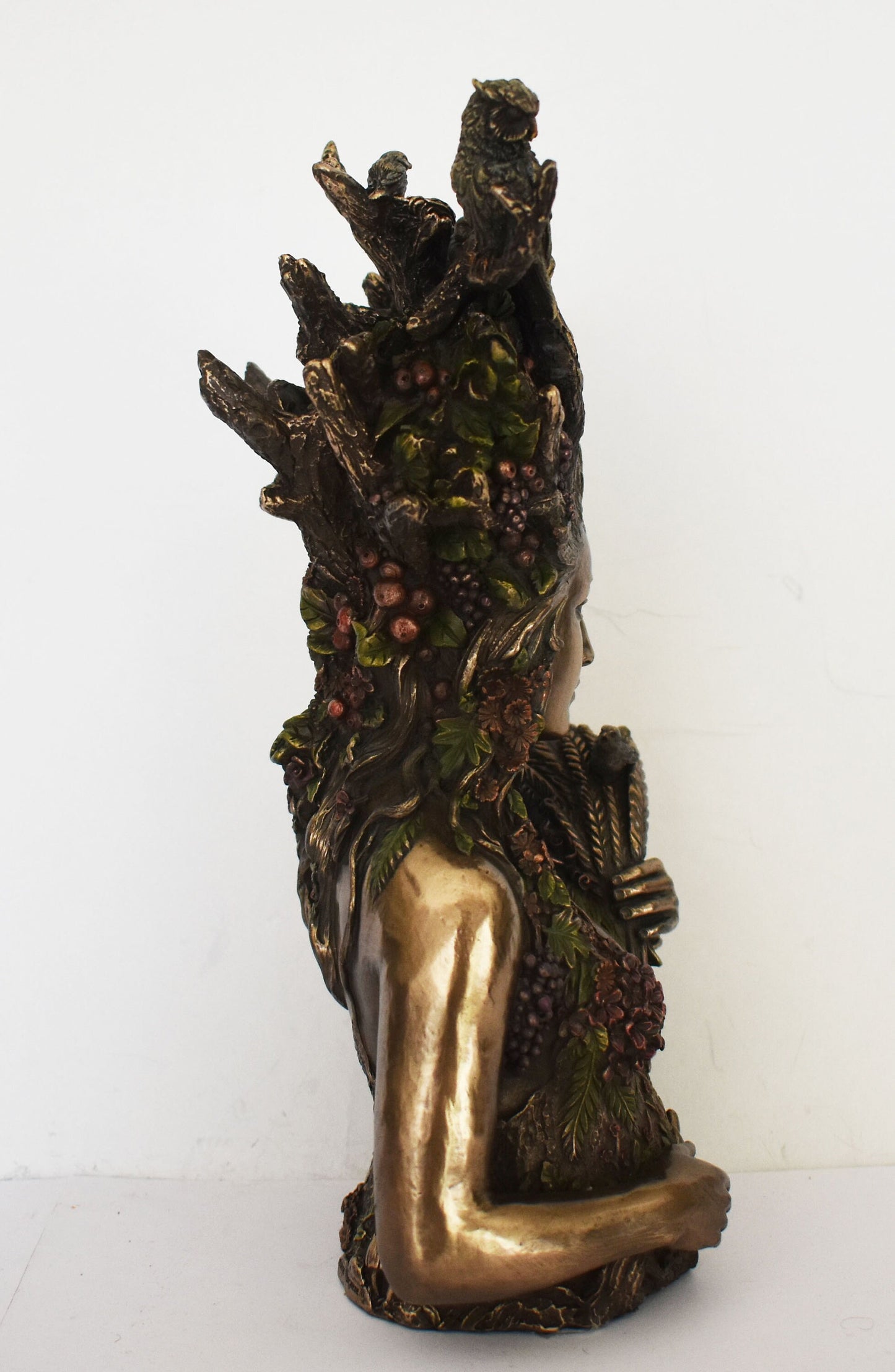Gallery Demeter
Gaia Gaea Terra - Ancient Greek Goddess of the Earth - The Great Mother of all creation - Hesiod's Theogony - Cold Cast Bronze Resin
Gaia Gaea Terra - Ancient Greek Goddess of the Earth - The Great Mother of all creation - Hesiod's Theogony - Cold Cast Bronze Resin
Regular price
€179,90 EUR
Regular price
Sale price
€179,90 EUR
Unit price
per
Tax included.
Shipping calculated at checkout.
Couldn't load pickup availability
Item Specifics
Condition: New
Material: Cold Cast Bronze Resin
Height: 25 cm - 9,8 inches
Width: 12 cm - 4,7 inches
Length: 9 cm - 3,5 inches
Weight: 1370 g
GAIA (Gaea) was the goddess of the earth. She was one of the primoridal elemental deities (protogenoi) born at the dawn of creation. Gaia was the great mother of all creation--the heavenly gods were descended from her through her union with Ouranos (Uranus) (Sky), the sea-gods from her union with Pontos (Sea), the Gigantes (Giants) from her mating with Tartaros (the Pit), and mortal creatures born directly from her earthy flesh.
Gaia was the chief antagonist of the heavenly gods. First she rebelled against her husband Ouranos (Sky) who had imprisoned several of her giant-sons within her womb. Later when her son Kronos (Cronus) defied her by imprisoning these same sons, she sided with Zeus in his rebellion. Finally she came into conflict with Zeus for she was angered by his binding of her Titan-sons in Tartaros. She birthed a tribe of Gigantes (Giants) and later the monster Typhoeus to overthrow him, but both failed in their attempts.
In the ancient Greek cosmology earth was conceived of as a flat disk encirced by the river Okeanos (Oceanus), and encompassed above by the solid dome of heaven and below by the great pit (or inverse dome) of Tartaros. Earth supported the seas and mountains upon her breast.
In Greek vase painting Gaia was depicted as a buxom, matronly woman rising from the earth, inseparable from her native element. In mosaic art, she appears as a full-figured woman, reclining on the earth, often clothed in green, and sometimes accompanied by troops of Karpoi (Carpi, Fruits) and Horai (Horae, Seasons).
